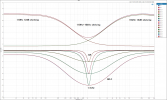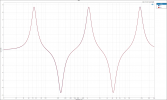antennaguru
Senior Member
As has been mentioned the bands selected are the same as with the Cello Audio Palette, which I recall reading were chosen by Dick Burwen who was considered a genius in that era.
The Cello unit was extraordinarily expensive and considered a real benefit by those that used them.
The Cello unit was extraordinarily expensive and considered a real benefit by those that used them.




